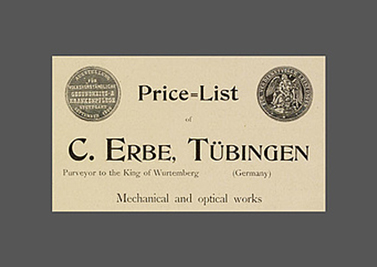International success 1882-1923
Christian Gottlieb continually broadened his selection of products, now adding induction equipment, microtomes, endoscopy lighting and ophthalmological instruments to his existing repertoire of Instruments.
Christian Gottlieb (1855-1907) and Pauline Erbe (1857-1933)

When Christian Gottlieb Erbe completed his apprenticeship in precision mechanics in Stuttgart at the beginning of the 1870s, the German Empire had only recently been established. In 1871, Otto von Bismarck had become the first Imperial Chancellor. Central Europe was in the throes of the Industrial Revolution. While news of inventions in the fields of technology and medicine was spreading with increasing frequency around the world, the young mechanic began traveling, like his father before him. He worked in Vienna, Berlin, Holland and Freiberg in Saxony.
In 1882, Christian Gottlieb Erbe took over the workshop. He was 27 years old. In the same year, he married Pauline Gruenvogel from Weil im Schoenbuch. Unlike his father, who had completed all the work in the workshop by himself, Christian Gottlieb hired a number of
employees, some of whom he brought to Tuebingen from Berlin and Freiberg.
His father's contacts within the institutes of the University of Tuebingen provided a sound basis. Christian Gottlieb continually broadened his selection of products, now adding induction equipment, microtomes, endoscopy lighting and ophthalmological instruments to his existing repertoire of instruments.
In 1907, Christian Gottlieb Erbe died unexpectedly at 52 years old. His wife Pauline took over the management of the company, a courageous decision in an era in which women in Germany were not permitted to vote and could only study at a handful of universities. As company managers, they were a rare sight. For 16 years, Pauline remained the sole owner supported by her son Christian Otto, to whom she transferred the company in 1923.
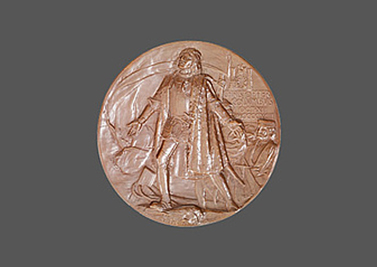
From 1890 onwards, Erbe equipment and instruments were on display at exhibitions throughout the world. Success was not far away: prizes and medals were duly awarded, e.g. at the International Exhibition in Antwerp in 1891 and – as shown here – the bronze medal in 1893 at the Chicago World's Fair. Erbe received the award for a microtome. In 1893, Chicago was known as the "Slaughterhouse to the world", and was the center of industrial meat processing. Using microtomes, thin sections of tissue could be produced for bacteriological and histological examination. Christian Gottlieb Erbe improved on these on an ongoing basis. His models attracted considerable attention, as they worked in a reliable and highly-precise fashion.
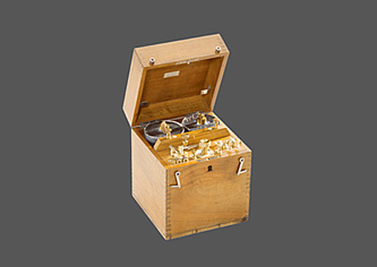
Whether faradic, direct or alternating current, or at low or high voltages: in 1900, electricity was being used in medicine in increasingly varied fashion. In the Erbe workshop and retail store at no. 2 Neue Strasse in Tuebingen, a wide selection of medical electrical equipment and accessories could be purchased, in addition to optical equipment. The top seller was induction equipment that delivered electricity for surgical applications and electrical muscle stimulation.
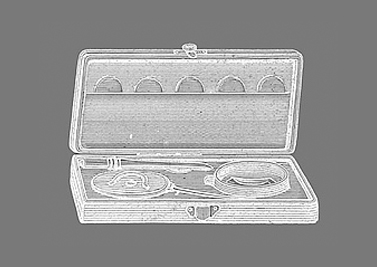
Since 1851, ophthalmoscopes had been used in medicine to examine the inner eye. Christian Gottlieb Erbe modified the design in such a way that physicians could see an image of the retina with less glare. He achieved this effect by adopting a conical shape for the viewfinder, which was just a few millimeters wide. His innovation quickly became known as the "Tuebingen model" ophthalmoscope.
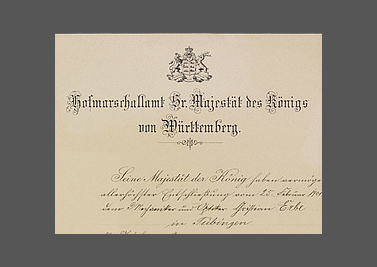
King William II of Wuerttemberg and his wife Charlotte were customers at the Erbe optical store at Holzmarkt in Tuebingen. In 1901, Erbe was appointed an official supplier to the Wuerttemberg Royal Family. When Christian Gottlieb Erbe died in 1907, his widow Pauline was awarded the right to continue to use the Appellation.
